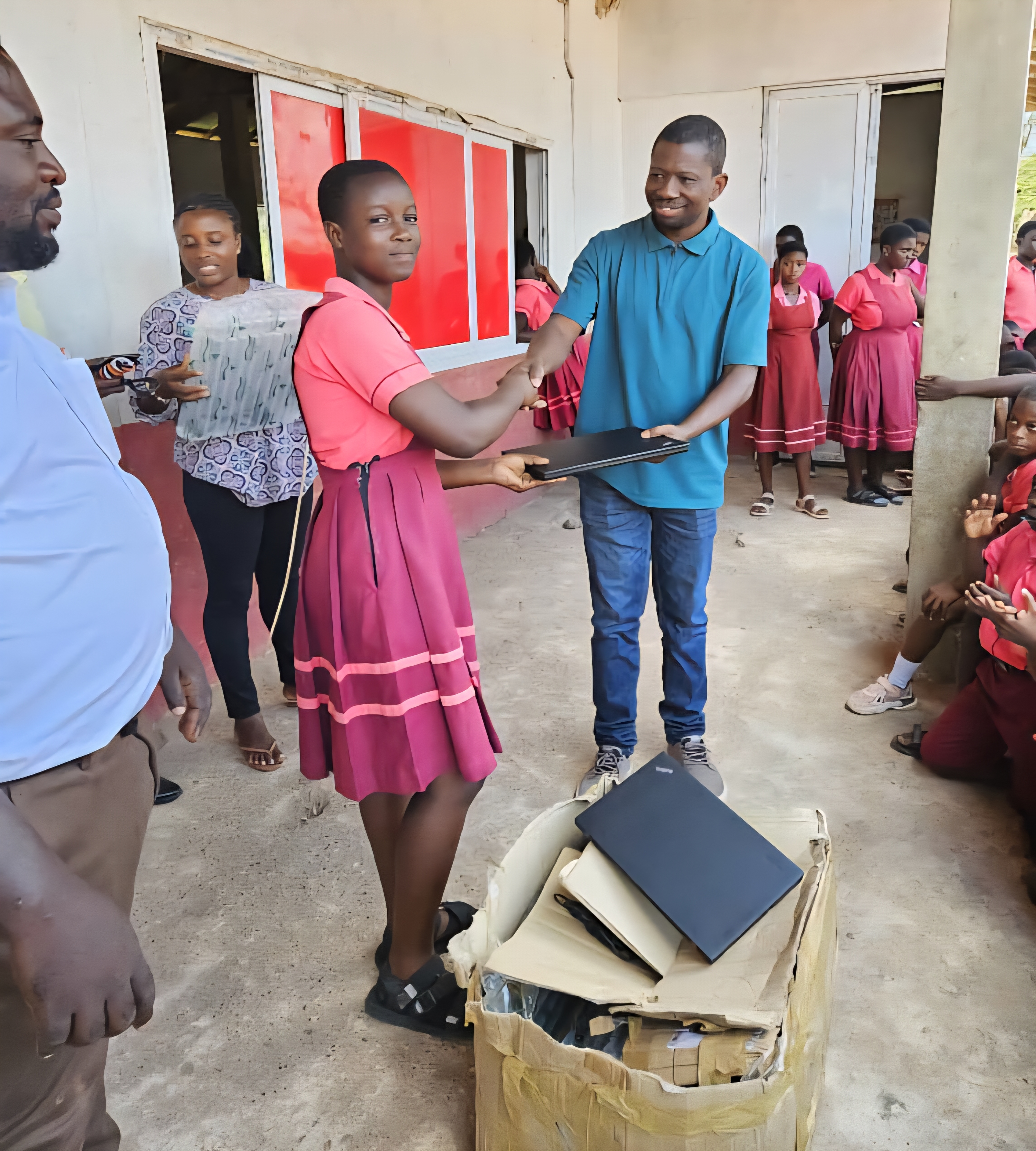The Basic Education Certificate Examination (BECE) is a crucial examination for students in Ghana. The 2024 BECE will be based on a new syllabus developed by the National Council for Curriculum Assessment (NaCCA) and the Ministry of Education. This report provides an overview of the key topical areas in English that students must master, along with sample questions released by the Ministry of Education.
Topical Areas
1. Concord
– Subject-verb agreement
– Pronoun-antecedent agreement
2. Question Tags
– Formation and usage of question tags
3. Punctuations
– Use of commas, periods, exclamation marks, and question marks
4. Direct and Indirect Speech
– Changing direct speech to indirect speech and vice versa
5. Sentences
– Types of sentences according to meaning (declarative, interrogative, imperative, exclamatory)
– Types of sentences according to structure (simple, compound, complex, compound-complex)
6. Clauses and Modifiers
– Adjectival/relative clauses
– Noun/nominal clauses
– Verbless clauses
– Adverbial clauses
7. Orals
– Oral presentation skills
– Listening comprehension
8. Tenses
– Present, past, and future tenses
– Continuous and perfect tenses
9. Idioms
– Meaning and usage of common idioms
10. Synonyms
– Words with similar meanings
11. Antonyms
– Words with opposite meanings
12. Literature
– Knowledge and understanding of the prescribed literature text.
SAMPLE QUESTIONS RELEASED BY THE MINISTRY OF EDUCATION
The central point of the standard-based curriculum is the concept of learning domains that should be the basis for instruction and assessment. These are knowledge, understanding, application, analyses, synthesis, evaluation and creation. This is expected to translate into attitudes and values of learners.
Under this domain, learners acquire knowledge through some learning experiences. Learners may also show an understanding of concepts by comparing, summarising, and re-writing in their own words and constructing meaning from instruction. At a higher level of learning behaviour, the learner may be required to analyse, synthesise ,evaluate, estimate and or interpret a concept knowledge by
integrating a number of ideas to formulate a plan, solve a problem, compose a story, or a piece of music. At the last level, which is the
highest, learners may be required to create, invent, compose, design and construct using English Language.
The focus is to move teaching and learning from the didactic acquisition of “knowledge” where there is fact memorisation, heavy reliance on formulae, remembering facts without critiquing them or relating them to the real world – surface learning – to a new position called – deep learning. Learners are expected to deepen their learning by knowledge application to develop critical thinking skills and to generate creative ideas to solve real life problems in their school lives and later, in their adult lives.
This is the position where learning becomes beneficial to the learner. Details of the domains are as follows:
Knowing: This is the ability to remember, recall, identify, define, describe, list, name, match, state principles, facts and concepts.
Knowledge is the ability to remember or recall concepts already learnt and this constitutes the lowest level of learning.
Examples:
1. The woman, as well as her uncles, ______been given free accommodation.
A. have
B. has
C. are
D. is
2. The police ______ doing good work in Ghana.
A. are
B. is
C. has
D. Have
3. Did you borrow the _____ of my umbrellas?
A. fine
B. finer
C. finest
D. finally
Understanding: This is the ability to explain, summarise, translate, rewrite, paraphrase, give examples, generalise, estimate or predict consequences based on a trend. Understanding is generally the ability to grasp the meaning of some concepts that may be verbal, pictorial, or symbolic.
Examples:
Use the passage to answer questions 1 and 2.
(i)
Baduwa always leaves her books in school, … (ii) You and I will do that too, …
(ii)
(iii) I am doing the same thing already, aren’t I?
1. Which of these question tags best completes sentence (i)?
A. doesn’t she?
B. don’t she?
C. isn’t she?
D. aren’t they?
2. Which of these question tags best completes sentence (ii)?
A. won’t we?
B. Don’t we?
C. isn’t it?
D. will we?
3. Which of these sentences is appropriately capitalised and punctuated?
A. Linda’s books were given to kwesi
B. Linda’s books were given to Kwesi.
C. Lindas books were given to Kwesi
D. linda’s books were given to Kwesi.
Applying: This dimension is also referred to as “Use of Knowledge”. It is the ability to use knowledge or apply knowledge, apply
rules, methods, principles, theories, etc. to situations that are new and unfamiliar. It also involves the ability to produce, solve, plan, demonstrate, discover, etc.
Examples:
Two people are engaged in a dialogue. Choose from the options A to D, the one which best represents the indirect speech form of the direct speech.
1. The teacher said, “The children are tired.”
A. The teacher said that the children will be tired.
B. The teacher said that the children are tired.
C. The teacher said that the children were tired.
D. The teacher said that the children would be tired.
2. The President said, “I appoint Ms. Ansah as the secretary.”
The President said that … as secretary.
A. he appointed Ms. Ansah
B. I appoint Ms Ansah
C. Ms Ansah have been appointed
D. Ms. Ansah has been appointed
Analysing: This is the ability to break down concepts/information into its component parts; to differentiate, compare, distinguish,
outline, separate, identify significant points, etc., ability to recognise unstated assumptions and logical fallacies; ability to recognise inferences from facts, etc.
Examples:
Use the passage below to answer question 1 to 3.
(i)What a mark you scored in mathematics! (ii) Help me understand simple ratio. (iii) I have been struggling in mathematics all along.
(iv) Have you studied well enough to pass the test this week? (v) Indeed, I need to get a good mark this time round.
1. Which of these numbered sentences is declarative sentence?
A. Sentence (i)
B. Sentence (ii)
C. Sentence (iii)
D. Sentence (iv)
2. Which of these numbered sentences is an interrogative sentence?
A. Sentence (i)
B. Sentence (ii)
C. Sentence (iii)
D. Sentence (iv)
3. Which of these numbered sentences is an exclamatory sentence?
A. Sentence (i)
B. Sentence (ii)
C. Sentence (iii)
D. Sentence (iv)
Synthesising: This is the ability to put parts or ideas together to form a new whole. It involves the ability to combine, compile,
compose, devise, plan, revise, organise, create and generate new ideas and solutions.
Examples:
Read the following passage and answer questions 1 to 3.
i. I know the lady who manages the school. (ii) Whatever the man tells her sounds good to her.
(iii) She defends him whenever someone complains about him.
(iv) No matter what, the man would do whatever he wants in the school.
1. The underlined clause in sentence (i) is a
A. adjectival clause
B. noun clause
C. noun phrase
D. verb phrase
2. Which word is the clause in sentence (i) modifying?
A. I
B. lady
C. school
D. who
3. The clause in sentence (ii) is an example of a/an
A. adjectival clause.
B. adverbial clause.
C. nominal clause.
D. relative clause.
Evaluating: This is the ability to appraise, compare features of different things and make comments or judgment, contrast, criticise, justify, support, discuss, conclude, make recommendations etc. Evaluation refers to the ability to judge the worth or value of some concepts based on some criteria.
Example:
Read the passage and answer the questions.
One sunny day, Kwame and Esi, his sister, decided to water the plants in their backyard. Kwame and Esi always help each other so that the work is finished faster. They, , together with their parents, enjoy gardening and farming during vacations. It’s like a family ritual.
While Kwame watered the tomato and pepper, Esi watered the mango and orange trees. Kwame loves the smell of the flowers and Esi enjoys eating fruits like mangoes, oranges and bananas.
They both carefully poured the right amount of water needed by each plant. The sun was blazing and the weather was considered perfect for the growth of the plants. The soil was moist and fresh and both Kwame and Esi placed the seeds deep within it.
Questions
A. Summarise in your own words, the reason why Kwame and Esi like the holiday.
B. In two sentences, state the crops Kwame and Esi cared for in their garden.
C. In two sentences, state the ingredient for plant growth according to the passage.
Creating: This is the ability to use information or materials to plan, compose, produce, manufacture or construct products. From the foregoing, creating is the highest form of thinking and learning and is, therefore, a very important behaviour. This, unfortunately, is the area where most learners perform poorly. In order to get learners to develop critical thinking skills, it is advised that teachers do their best to help their learners develop analytic skills as already stated.
Example:
Write an essay with a maximum of 250 words on any of the questions below
1. Some of your classmates are against the idea of doing homework. Discuss two reasons why it is good to do homework.
2. Two of your mates want to stop attending school because they want to be assistants bus drivers. Discuss with them two reasons
why they should continue attending school.
3. You want to own a mobile phone that has internet connection. Write a letter to your parents explaining two reasons why they
should buy such a phone for your use.
SET 1
ENGLISH LANGUAGE
PAPER 1
INSTRUCTIONS
Paper 1 has two parts: Part A and B. Part A has 50 questions on Lexis and Structure. Part B has 4 questions on Literature-in-English. Paper 2 has 3
essay questions, a comprehension and summary passages.
PART A
LEXIS AND STRUCTURE
Answer all questions
From the alternatives lettered A to D, choose the word that has similar sounds to the word underlined in the sentence 1 to 3.
Paper 1
1. Which one of these words contains the sound /e/ as in “pet”?
A. neat
B. nest
C. eager
D. peak
2. Which one of these words does not contain the sound /ↄi/ as in “boil”?
A. poison
B. noisy
C. heroin
D. moist
3. Which one of these words contains the sound /u/ as in “pull”?
A. fool
B. full
C. plug
D. peal
Choose the word(s) that best completes questions 4 to 16.
4. Next year, I … to the city zoo.
A. be going
B. will be going
C. will going
D. will goes
5. The boy, just as their friends, … to school every day.
A. go
B. goes
C. going
D. gone
6. Please give back the book, it’s
A. I
B. my
C. mine
D. Abenas
7. The lady student who … at the hostel left her room this morning.
A. stays
B. stay
C. has stay
D. have stay
8. We have been invited to ……birthday party in March.
A. Musa
B. Musa’s
C. Musas’
D. Must
9. She is the … of my two daughters.
A. small
B. young
C. younger
D. youngest
10. Have you … sugar?
A. few
B. any
C. most
D. fewer
11. I haven’t seen Kate … Christmas.
A. for
B. never
C. ever
D. since
12. We will write the test … the paper is printed.
A. provide
B. provided
C. provides
D. providing
13. I was expecting it to rain today, … I brought an umbrella.
A. and
B. because
C. but
D. so
14. He was made to join the high jump team … his height.
A. in spite of
B. since
C. but for
D. though
15. I ran … than they expected.
A. more slower
B. slow
C. slower
D. slowest
16. If you believe in yourself, you … see positive results.
A. will
B. will have
C. would
D. would had
Use the passage below to answer questions 17 to 20.
(i) We eat fruits daily since they are good for our health. (ii) Unfortunately, many people do not eat them. (iii) Fruits are common, but
they are expensive everywhere in the world. (iv) I buy them, and my family members eat them since fruits are sweet.
17. Sentence (i) is an example of … sentences.
A. complex
B. compound
C. compound complex
D. simple
18. Sentence (ii) is an example of … sentences.
A. complex
B. compound
C. compound complex
D. simple
19. Sentence (iii) is a … sentence.
A. complex
B. compound
C. compound complex
D. simple
Use the passage below to answer questions 20 to 22.
(i) He wants to leave the house at 6 a.m. every day. (ii) Can you call him when you wake up in time? (iii) What a duty you have given
me! (iv) Give me an alarm clock for this job.
20. Which of these numbered sentences is a declarative sentence?
E. Sentence (i)
F. Sentence (ii)
G. Sentence (iii)
H. Sentence (iv)
21. Which of these numbered sentences is an exclamatory sentence?
A. Sentence (i)
B. Sentence (ii)
C. Sentence (iii)
D. Sentence (iv)
22. Which of these numbered sentences is an interrogative sentence?
E. Sentence (i)
F. Sentence (ii)
G. Sentence (iii)
H. Sentence (iv)
In each of the following sentences, a group of words has been underlined. Choose from the alternatives lettered A to D, the one that
best explains the underlined group of words.
23. We visit the old lady at the village once in a blue moon. This means we visit the old lady
A. once when the moon turns blue.
B. once in a long time.
C. very often in the month.
D. at odd times in the month.
24. The boy turns deaf ear to the advice that he should not eat sugar. This means the boy … the advice.
A. ignores
B. likes
C. encourages
D. disregards
25. I was at sea after the lesson on human rights. This means that I was … after the lesson on human rights.
A. confused
B. comfortable
C. well informed
D. happy
Answer the questions that follow this short, numbered passage.
(i) We stay in a village where the only source of water is a well. (ii) One of my friends who lived with us moved to Accra because of this. (iii) She visited us whenever she was in the village. (iv) She advised me never to trust people who are not honest. (v)What she told me saddened me.
26. The underlined clause in sentence (i) is a/an
E. adjectival clause.
F. noun clause.
G. noun phrase.
H. adjectival phrase.
27. Which word is the clause in sentence (ii) modifying?
E. Accra
F. friends
G. one
H. us
28. The clause in sentence (iii) is an example of a/an
E. adjectival clause.
F. adverbial clause.
G. nominal clause.
H. verbless clause.
29. What word is the clause in sentence (iv) modifying?
A. people
B. trust
C. she
D. me
Two people are engaged in a dialogue. Choose from the option A to D, the one which best represents the direct speech form of the indirect speech.
30. Alexandra said she had never travelled to Bolgatanga.
A. Alexandra said, ‘I have never travelled to Bolgatanga.’
B. Alexandra said, “I had never travelled to Bolgatanga.”
C. Alexandra said, “She has never travel to Bolgatanga.”
D. Alexandra said, “She has never travelled to Bolgatanga.
Two people are engaged in a dialogue. Choose from the option A to D, the one which best represents the passive form of the active voice.
31. He watched the film yesterday.
A. The film was watched yesterday.
B. The film has been watched.
C. He has watched the film.
D. He had watched the film.
32. The people arrest all the thieves in the area.
A. All the thieves were arrested.
B. All the thieves have been arrested
C. The thieves in the area are arrested.
D. The thieves arrested the people.
Use the passage to answer questions 33 to 35.
(i). The shop has not been closed down yet, … (ii). It will be easier we buy some food there , … (iii). You and I can get there and see, can’t we?
33. Which of these question tags best completes sentence (i)?
A. has it?
B. haven’t it?
C. is it?
D. will it?
34. Which of these question tags best completes sentence (ii)?
A. is it?
B. won’t it?
C. will it?
D. wouldn’t it?
35. Which of these is the best answer to sentence (iii)?
You and I can get there and see, can’t we?
A. No, we can.
B. No, we can’t.
C. Yes, we can.
D. Yes, you can’t.
36. Which of these sentences is appropriately capitalised and punctuated?
A. Atsu’s dog, boxer was sick.
B. Atsus dog Boxer, was sick.
C. Atsu’s dog Boxer was sick.
D. Atsu’s dog, Boxer, was sick.
37. Which of these sentences is appropriately capitalised and punctuated?
A. It has been taken to Wa veterinary hospital.
B. It has been taken to wa veterinary Hospital.
C. It has been taken to Wa Veterinary Hospital.
D. it has been taken to Wa Veterinary hospital.
For questions 39 to 41, choose the word which is nearest in meaning (synonyms) to the underlined word.
38. Kojo believes the stories Adwo tells him.
A. accept
B. considers
C. doubts
D. trusts
39. He combines those coloured items well.
A. splits
B. joins
C. separates
D. disunites
40. The two boys were rude to their mates in the room.
A. impolite
B. civil
C. respectful
D. polite
For questions 42 to 44, choose the word which is nearly opposite in meaning (antonyms) to the underlined word.
41. They frequently shouted during the concert.
A. occasionally
B. usually
C. often
D. leisurely
42. In the near future, we will become independent.
A. distant
B. close
C. short
D. darker
43. The film was interesting in the end.
A. boring
B. dragging
C. biting
D. budding
PART B
LITERATURE-IN-ENGLISH
Read the following extract and answer the questions that follow the extract.
Ama Ata Aidoo’s The Dilemma of a Ghost
Who shall talk for the stranger?
My daughter or my sister,
Whom I have never set eyes upon,
You will cry until your throat is dry
And your eyes are blind with tears.
Yes, my young woman. I shall remember you.
I shall remember you in the night
In my sleep
In my sleepless sleep. (page 62)
44. The stranger in the extract is …
A.Ato.
B.Eulalie.
C.Petu.
D.2nd Woman.
45. “You will cry until your throat is dry.” Why did the speaker make this comment?
A. The speaker is a family member.
B. The speaker has the same challenge.
C. The character being discussed is her daughter.
D. The speaker is from the same place as the person
46. In my sleepless sleep. This is an example of a/an
A. metaphor
B. simile
C. oxymoron
D. personification
Read the text below and answer the questions 47 to 49.
Sleep on baby sleep
Sleep on baby sleep
Mummy loves you
Mummy loves you
And she cares for you
And she cares for you
47. The above text is an example of …
A. lullaby
B. ballad
C. ode
D. elegy
48. which sentence belongs to this poem
A. The poem will keep the baby awake.
B. The poet wants the baby to know the mother.
C. The poem would make the baby to sleep.
D. The mother wants the baby to learn.
49. The rhyme scheme of the stanza is
A. aabbaa
B. aabbcc
C. aabbbb
D. ababaa
Read the extract and answer the questions that follow it
Mama Is a Sunrise by Evelyn Tooley Hunt:
when she comes slip-footing through the door
she kindles us
like lump coal lighted,
and we wake up glowing.
She puts a spark even in Papa’s eyes
and turns out all our darkness. (184)
50. Which literary device (s) is dominant in the poem
A. alliteration and assonance
B. simile and euphemism
C. personification and metaphor
D. metaphor and simile
PAPER TWO
PART A: ESSAY
Write an essay with a maximum of 250 words on any of the questions below.
4. There is a storytelling contest for the youth in your town for By The Fireside Television Programme. Write an interesting story you know can win the highest award for the contest.
5. Your parents or guardians do not want to give you money saying that you are too young to use money. Write a letter to your
parents or guardian discussing two reasons why you think they should give money.
6. Your school has a career day and you decided for a particular one career. Write a letter to your mother explaining to her two
reasons why you chose this career.
PART B
COMPREHENSION
Read the passage carefully and answer the questions which follow.
There are leaders. There are those who lead from the front. They do not only give orders and directive, but also work together with other people. They think, plan, and make decisions for everyone. They set examples and are as disciplined as they want others to be. These leaders are difficult to meet.
Then there are leaders who lead from the back. These leaders give orders but move from the centre of activity. Because of their style of leadership, they are feared rather than respected. They are slave drivers who never share in the work involved.
Finally, there are those who are absentee leaders who direct from afar. They give rules and give instructions, but they do not practise any of them. In such a situation, failure is common. One may then ask why a leader would choose to be absent from his post. They are only interested in reaping the fruits of leadership. They enjoy the title, the financial rewards, and being worshipped by others. Sadly, there are many more such leaders around.
1. What does the writer mean by leading from the front?
2. Why are those who lead from the front most likely to succeed?
3. Why are those who lead from the front different from those who lead from behind?
4. Which of the three types of leaders very common?
5. What makes the third leaders a selfish person?
6. Replace the following words as used in the passage:
i.difficult
ii.centre
iii.practise
iv.situation
v.reaping
SUMMARISING
We wear clothing for different reasons. They protect us from cold and warm weathers. During a time in a year, we wear thick dresses that give warmth to our bodies. Other times too, we wear light clothes that allow us to enjoy the air blowing around us.
Some dresses identify us with certain countries and tribes. Many times, citizens of a country are identified by the fabric and the many colourful check patterns these dresses have. These days, one may be found in certain designs and patterns or even particular clothes, but that person may not be of that origin.
A. Write a suitable title for the passage.
B. In two sentences, state two importance of clothing.
C. In two sentences, state two main ideas with one from the second paragraph.
Note:
The sample questions provided by the Ministry of Education are intended to give students a general idea of the types of questions that may appear on the exam. Students should not limit themselves to these questions and should study the entire syllabus thoroughly.
 Pazionmedia.com Pazion Media l Latest News l Politics l Sports l Entertainment
Pazionmedia.com Pazion Media l Latest News l Politics l Sports l Entertainment



